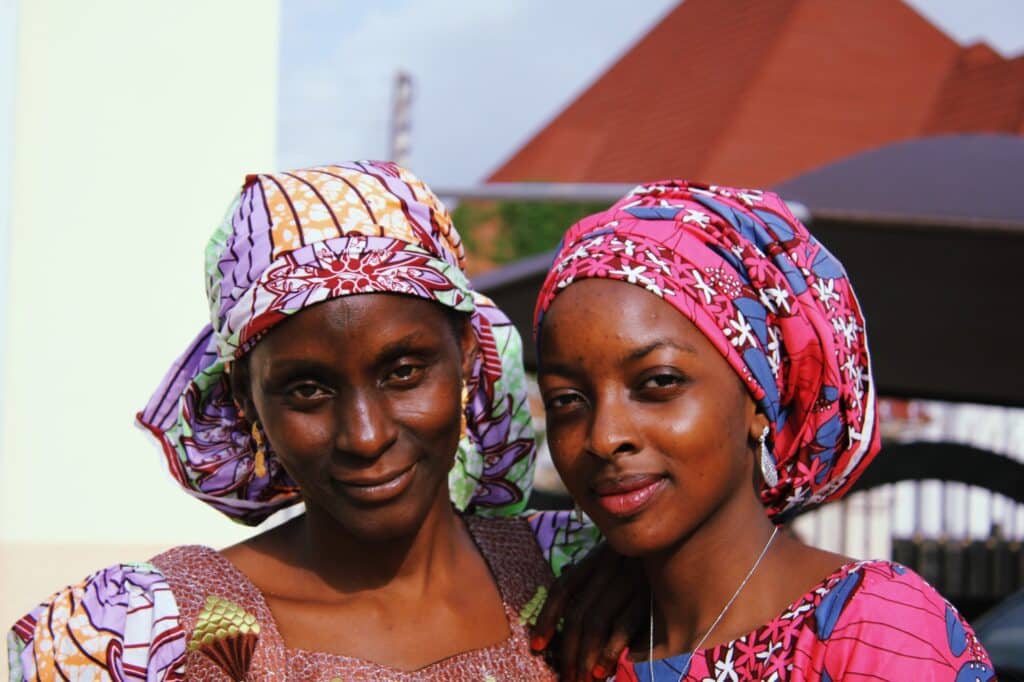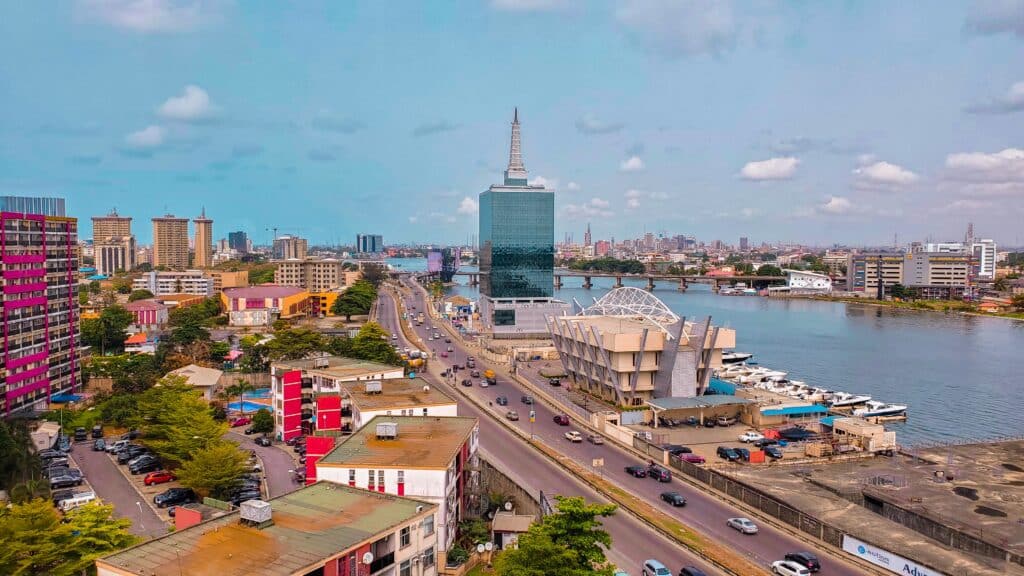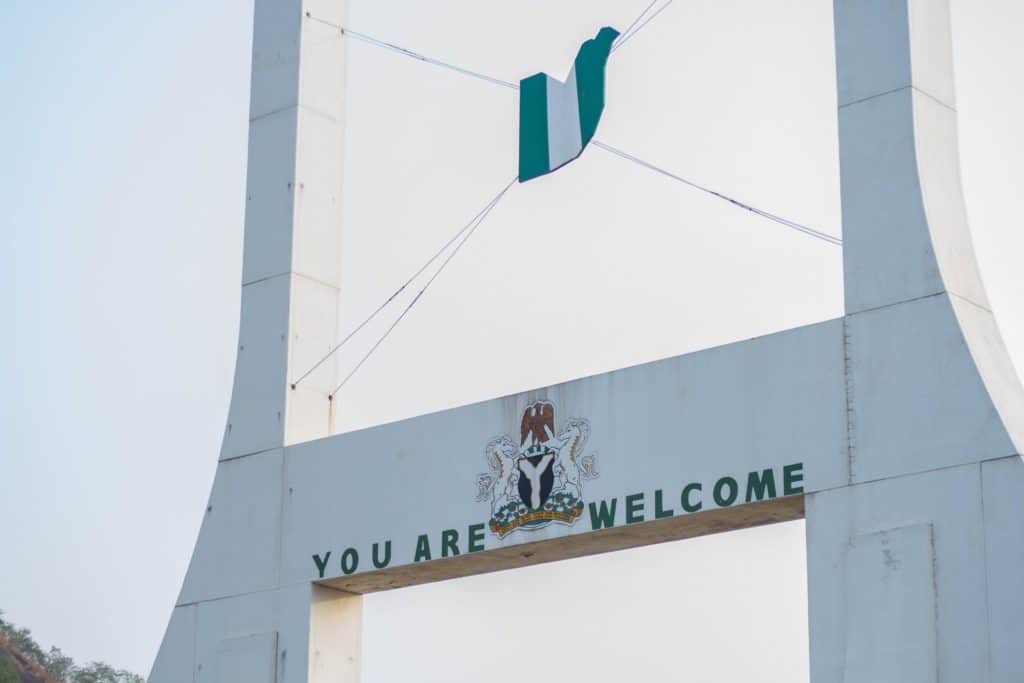Nigeria, the most populous country in Africa, is also the continent’s largest source of African immigrants to the United States. Further, the United States is the world’s top destination for Nigerians who move abroad. In 2015, the U.S. Census Bureau’s American Community Survey reported that 258,540 Nigerian-born immigrants lived in the United States.
The Nigerian diaspora worldwide is responsible for the largest financial remittances into sub-Saharan Africa, with over $17 billion in 2020 according to World Bank data.
In this article, let’s take a look at Nigerian immigration in the United States, including major population centers for U.S. Nigerian communities.

Nigerians in the United States
In 2015, Nigerians were the 29th largest immigrant group in the United States. As a group, they display some notable characteristics. For example, Nigerian Americans are one of the most educated groups in the U.S. Over 60% of those 25 and older have at least a bachelor’s degree, and 17% of Nigerians in the U.S. hold master’s degrees. More than half are employed in management, business, science, and art professions.
Nigerian immigrants as a group also have higher rates of participation in the labor force, and are more likely to speak English at home than other foreign-born communities.
Hubs for Nigerian immigrants are in Texas, mostly around Houston, as well as in Maryland, the Chicago region, the New York-New Jersey metro area, and Southern California.
Some remarkable members of the Nigerian population in the U.S. include Imelme Umana, president of the Harvard Law Review; Ngozi Okonjo-Iweala, Director-General of the World Trade Organization; and Bennet Omalu, the neuropathologist depicted in the 2015 film “Concussion.” Two of Nigeria’s most esteemed writers, the late Chinua Achebe and Chimamanda Ngozi Adichie, emigrated to the United States, too.
A History of Nigeria-to-U.S. Migration
The history of Nigerian immigration to the United States is relatively short.
Nigeria gained independence in 1960. From then on, a trend developed of wealthy Nigerians moving to the U.K. and the U.S. for education, with a smaller number migrating for work opportunities. The 1965 Immigration and Nationality Act made it easier for Africans to enter the U.S., resulting in a spike in Nigerian immigration.
Migration of Nigerians to the United States rose in the 1970s and 1980s, due largely to political upheaval and economic stagnation in Nigeria. The Migration Policy Institute describes how a “well-developed culture of professional migration emerged” as Nigerians began to stay abroad for longer and saw little incentive to return. By 1984, the Nigerian population in the U.S. increased to 10,000.
In more recent years, Nigeria has become one of the fastest growing origin countries for immigrants to the U.S. The number of immigrants from Nigeria to the U.S. increased by 79% from 2010 to 2019. In 2010, there were 219,000 immigrants from Nigeria, a figure that rose to 345,000 by 2017.
Why Do Nigerians Emigrate?
Overall, educational and professional opportunities have driven the history of Nigerian migration to the United States. Rather than through the green card lottery, most have entered with student or professional visas.
Established Nigerian-Americans can sponsor family members. In fact, 91% of new green-card holders from Nigeria in 2017 were family members of U.S. citizens or permanent residents.
While economic conditions have been the biggest factor, religious and ethnic conflicts have also played a role in Nigerian migration. A small minority of the Nigerian population in the U.S. from the mid-1990s arrived as asylum seekers fleeing a military dictatorship. According to the UN Refugee Agency (UNHCR), the United States accepted approximately 13,863 Nigerian asylum seekers from 1996 to 2005.
Where do Nigerians live in the United States?
The Nigerian population in the U.S. is concentrated in a handful of regions, with the largest communities around Houston, in Maryland, and in the wider Chicago region.
Other hubs are in the New York-New Jersey metropolitan area, and in Southern California, largely Los Angeles County. Some smaller Nigerian American communities are in Atlanta, Georgia; Columbus, Ohio; and Marion County, Indiana.
Source: Migration Policy Institute tabulation of data from the U.S. Census Bureau’s pooled 2015-2019 American Community Survey.
Texas
Of the top 10 counties for Nigerian immigrants nationwide, four are in Texas:
- Harris County (which includes Houston) has 28,600 Nigerian-born residents
- Fort Bend County adds 13,300
- Dallas County has 12,000
- Tarrant County has 8,300
Houston attracts Nigerian immigrants who work in the petrochemical industry, as well as in the medical and business professions.
Large organizations representing the Nigerian communities in Texas include the Houston-based Nigerian Foundation, which hosts a Nigeria Day celebration, along with Nigerian Union Diaspora, the Nigerian-American Multicultural Council, and the Nigerian Ladies Association of Texas.

Maryland
Maryland has 16,300 Nigerian-born residents in Prince George’s County (the second-largest population by county), plus 8,300 in Baltimore County. The Nigerians in Diaspora Organization Americas has its headquarters in neighboring Washington, D.C.
Other Maryland-based Nigerian organizations include the Nigerian Igbo Catholic Community, Nigerian Friendship Association, and the Nigerian Women Association, Maryland Metro Inc.
Chicago
Cook County, Illinois, which includes Chicago, has the fourth-largest number of Nigerian-born residents nationwide (by county) with 13,100. Nigerian populations live mainly on the North Side of Chicago, where fruit and vegetable markets and small stores along Broadway cater to African customers.
The North Side is home to a Nigerian Islamic Center and several Roman Catholic and Protestant churches with largely Nigerian congregations. The DuSable Museum of African American History hosts the Nigeria Festival of Chicago in the summer.
Other Regions
- Los Angeles County in California: 11,900 residents born in Nigeria
- New Jersey’s Essex County: 9,400 residents born in Nigeria
- New York City and surrounding area: 20,600 Nigerian-born residents
- Atlanta, Georgia area: over 10,000 Nigerian-born residents
- Indiana’s Marion County: over 5,000 residents born in Nigeria
You Might Also Like
- 5 Facts You Probably Didn’t Know about the Nigerian Naira
- How to Send Money to Nigeria
- A History of Immigration in the United States
- Where the World Wants to Work: Most Popular Countries for Moving Abroad
Visit the homepage, download our app, or check out our Help Center to get started.
